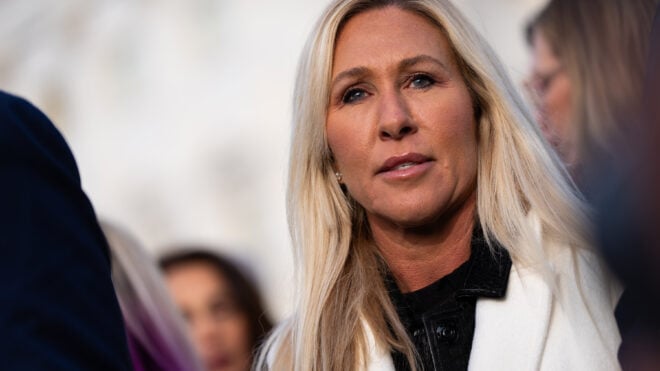
In 2019, the divorce rate in the United States hit an all-time low when it fell from 9.7 per 1,000 women over the age of 15 to 7.6 new divorces per 1,000 women over 15. It's also possible that the rate of new divorces in the US is even lower, as the Centers for Disease Control and Prevention states that in 2020 there were 2.7 divorces per 1,000 people. Of course, the divorce rate varies by state, so if that decline doesn't feel very reflective of where you live, there's probably a reason for it.
Divorce rates rising or falling means different things to different people. For some, a declining divorce rate indicates that "family values" are being upheld, though it's less clear what exactly that might mean. To others, a decline in new divorces could seem like there are fewer people out there who feel empowered enough to walk away from a marriage that is no longer a healthy environment.
I added to the divorce rate in 2020 when I left my marriage of 13 years, and there hasn't been a day that I've regretted the decision. In fact, the only thing I would like to change is how we talk about divorce and the unspoken rule that makes it difficult to talk about being happy you had one.

I finally left my marriage after three previous attempts at doing so. Before 2020, each time divorce was on the table there was always some other reason to not do it — never that we wanted to spend the rest of our lives together, but always something practical that convinced one or both of us that getting divorced would add an unnecessary complication.
I can't speak for my ex, but for me the reason I didn't leave before is that I couldn't fathom a world in which I didn't get to see my son every day. I still can't fathom that world, and I'm a little over 18 months into it, but I began to understand that for my son to feel true happiness, he needed to see it in action. Anything else would be a failure on my part.

The fact that I'm a mom gave a friend the opportunity to ask that all-important question — if my son were in the same relationship, what would I tell him to do — but now that I'm coming up on two years to the day that I firmly stated our marriage needed to, had to, end, I understand that choosing your own happiness is the best choice (maybe the only choice), with or without parenthood. You don't need to be a mom to choose yourself over a dying marriage.

There is not shortage of articles and books out there about whether or not marriage is actually good for women; plenty of statistics indicate that men live longer if they're married to women, but it's not clear if the reverse is true.
Paul Dolan, a professor of behavioral science at the London School of Economics, has been quite blunt about where he stands. In 2019 he told The Guardian, "We do have some good longitudinal data following the same people over time, but I am going to do a massive disservice to that science and just say: if you’re a man, you should probably get married; if you’re a woman, don’t bother."

Does that mean that women can't marry men and be happy? Of course not. A report by Vox directly contradicts the claims made by Professor Dolan in his book Happy Ever After and even outright disputes the method he used to arrive at his conclusions about marriage. Once one part of Dolan's book was found to contain errors, Vox notes that it was pretty easy to find even more.
Of course, by then the damage was done, and numerous articles had been published proclaiming married women were deeply unhappy.

The further I get from my own marriage, the more I understand that to me, the truth is pretty clear: It's not easy for anyone to understand anything that does or doesn't go on in another relationship, especially one that has two people legally bound together. We can't even begin to pretend to fathom how someone else can or can't define personal happiness when we each have different boundaries and different ways to measure what we think happiness is to us.

From an evolutionary standpoint, men and women don't feel the same amount of guilt at all. If it seems like the men in your life skate by without expressing even 20% of the emotional range that the women in your life express all the time, you're probably not wrong. Maybe men really are just a bunch of Ron Weasleys, bopping around out there expressing "the emotional range of a teaspoon."
Maybe that's why it seems like men have no problem moving on after leaving a relationship they didn't want anymore, or no problem not holding back from slamming an ex who left them. Maybe that's why so many women feel like they can't talk about being happy that they got divorced. Maybe it's something I'm making up based on my own experiences, or maybe it's real.

What I have learned is that in a lot of cases, or at least in my own, there wasn't a wrong reason to get divorced. I don't actually have to have a long list of crimes my ex might have committed against our marriage. I can just say that I wasn't happy; I can just say that I wanted something else. It's not an insult to just say I was the one who left, and I'm not slamming anybody when I say I needed something else in my life. That's just the truth.
Sure, I also left because I wanted my son to see me really love and really be loved, but more than that, I wanted to know what it felt like to wake up every day and know I'm where I belong, that I'm valued for who I am and not what I provide, and that I have a partner who is invested in the actual me. I didn't know I wanted those things until I walked into a new relationship, but now I can't fathom why I stayed in my marriage as long as I did when these things existed out there.

Happiness doesn't exist in another person, and that's something I suspected for a long time but now am beginning to understand thoroughly. I am often deliriously, deliciously happy in a way I didn't know existed, and I never would have found that if I hadn't pushed through. Life was OK before. Life is technicolor now.
It's true what they say — if you're always chasing external happiness, you will never reach it internally. You can't give your best to someone else if you aren't giving your best to you. True love is self-love, and self-love is the highest love.
In short: It's OK to leave just because you want to, just because that's what feels right.







